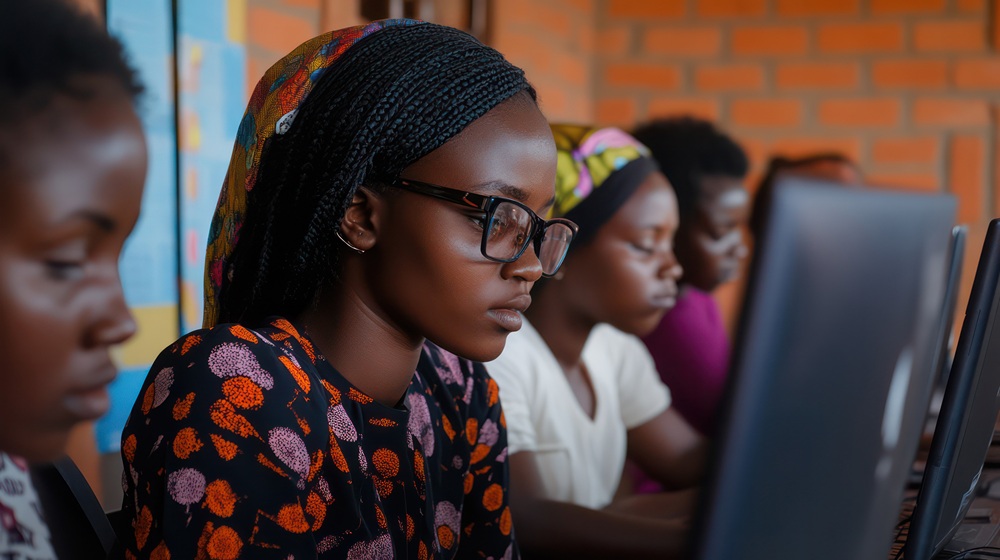Heavy expectation has followed digital learning initiatives across Africa, says Ben Roberts, CTO of Liquid Intelligent Technologies. After all, such initiatives promise to deliver so much to under-resourced schools: the world’s best educational content available to children on affordable tablets or e-books as well as greater online training and support tools for teachers.
“Or so the story goes. The reality for Kenya and other African nations has been rather different.
Kenya has faced challenges in fulfilling its ambitious plans to give first year primary school students access to laptops, but the Digital Learning Programme (DLP) – also known as Digischool – is now up and running. In March, the DLP began a pilot scheme in 150 select primary schools across Kenya, before it is then rolled out to more than 22,000 public primary schools. By August 2017, the programme is expected to have reached all schools across the country, with over 60,000 teachers undergoing training by the Kenya Institute of Curriculum Development (KICD) on how to use their own devices and those of their pupils.
Meanwhile, serious work is underway to bring connectivity to schools across the country. In September, Communications Authority (CA) of Kenya announced plans to connect 1,000 public secondary schools with the internet by June 2017, subsidised by the Universal Service Fund (USF) collected from telecoms operators.
I’ve done my part in my work at Liquid Intelligent Technologies over the years, supporting tertiary education and specifically in Kenya by providing connectivity for the Kenya Education Network (KENET), to bring huge bandwidth to Universities. Just recently I witnessed first-hand the benefits of digital learning when we set up a project to provide tablets and internet access to Kiltamany Primary School in Samburu County. We partnered with Kenyan startup BRCK to supply the school with a Kio Kit; an award-winning rugged ‘Digital School in a Box’.
I grew up in the 1970’s as the first generation of children to use computers at school and home. Back then you could learn about programming a computer, and publish neat work using a ‘word processor’. Things are not so BASIC now and there is so much information online that it makes text books seem obsolete. Devices and apps now are so intuitive that my eldest son taught me how to use YouTube before his 5th Birthday. He’s now 10 doing robotics and programming at school.

So its that simple and the formula for digital learning is:-
Education = Devices + Internet
Right?….
The scene has been set for a new era of digital learning in Kenya, but the work won’t simply end with the provision of connectivity and laptops to school. With the benefits of increased access online for children, also comes risks.
Protecting children online is a global problem that requires concerted efforts of parents, guardians, government and organisations that focus on children. Initiatives such as Child Online Protection (POC), will be crucial in supporting Kenya’s transition to digital learning. The recent ‘Be the Cop’ campaign pioneered by the CA campaign focuses on raising awareness amongst children on the risk of online crimes, such as cyberbullying, identify theft and online fraud.
It also warns children about the risks of internet addiction. Sadly, the image of a family sat around the dinner table hooked to their individual smartphones or tablets is becoming commonplace throughout the world, and Kenya is no exception. You can often see families in Java café in a Sunday after church, sitting in silence busy playing games and uploading their selfies. It is important that the next generation of Kenyans grow up with a healthy balance between engaging with one another on online and building relationships with people in the real world.
The move to more digital-based learning will also intensify the Kenyan government’s ongoing battle with exam cheating. Exam cheating has been making the headlines of national newspapers since 2013, reaching a frenzy in March when the Kenyan government dissolved the national examination board and arrested its members after they were implicated in widespread cheating on university entrance exams. This will be a top priority for the government moving forward, which won’t want to imitate the extreme lengths taken by Syria. The Syrian government reportedly shut down the whole country’s internet access seven times within nine days to prevent exam cheating in August.
So perhaps the formula is
Education = (Devices + Internet) log(Child Online Protection) – (Cheating /(Teachers + Family))
Ah, I’ll just use Google and find the perfect formula….
If key stakeholders such as the government, education boards and network operators get it the formula right, then digital learning looks set to take off in Kenya in 2017. Let’s hope they pass with honours.”





